【CONTENTS】Places where Rock Ptarmigan can be easily observed

Tateyama Mountains
Tateyama Mountains, a relatively stable rock ptarmigan habitat is a great place to see them.You may even seem them along the trail.
As soon as you exit Tateyama Murodo Station on the Tateyama Kurobe Alpen Route, you will find yourself in a rock ptarmigan habitat. If you are lucky there will be rock ptarmigan to greet you right out of the station.
Tsutomu Matsuda of the Toyama Grouse Research Society, has been studying rock ptarmigan since the 1970’s. The data accumulated over many years in the same area plays a significant role in the future preservation of the rock ptarmigan. Mr. Matsuda has been working voluntarily from a very early stage to introduce the rock ptarmigan and on efforts for its preservation. He states, “the rock ptarmigan in Tateyama have built a great relationship with people.” If you have high hopes of seeing a rock ptarmigan, climb up the Raichou-zaka slope all the way to the Tsurugi Gozen hut. Murodo offers the best chance for encountering a rock ptarmigan, so we recommend taking advantage of the opportunity and spending the night at this mountain pass with excellent views of Mt. Tsurugi.
From Tateyama Murodo Station walk towards Mikuri-gaike Lake. Please abide by the path indicators. Continue past Mikuri-gaike Lake, Mikuri-gaike Onsen, and the Raicho-so Inn until you come upon the sprawling Raicho-sawa Camping Ground. From here you can ascend the steep Raichou-zaka slope. It takes approximately 3.5 hours to reach Mt. Bessan. As you walk, keep in mind the opportunity to encounter a rock ptarmigan.
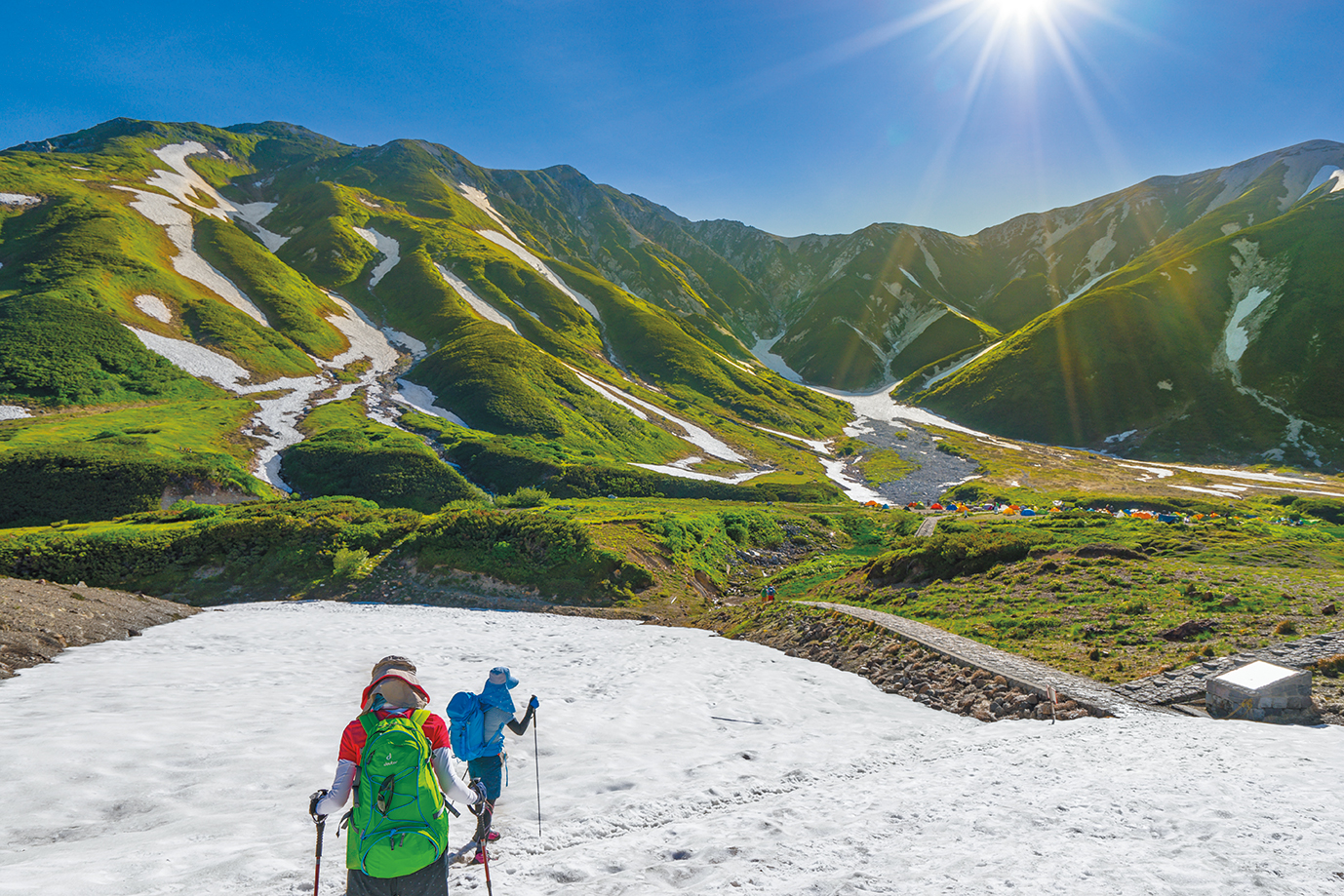
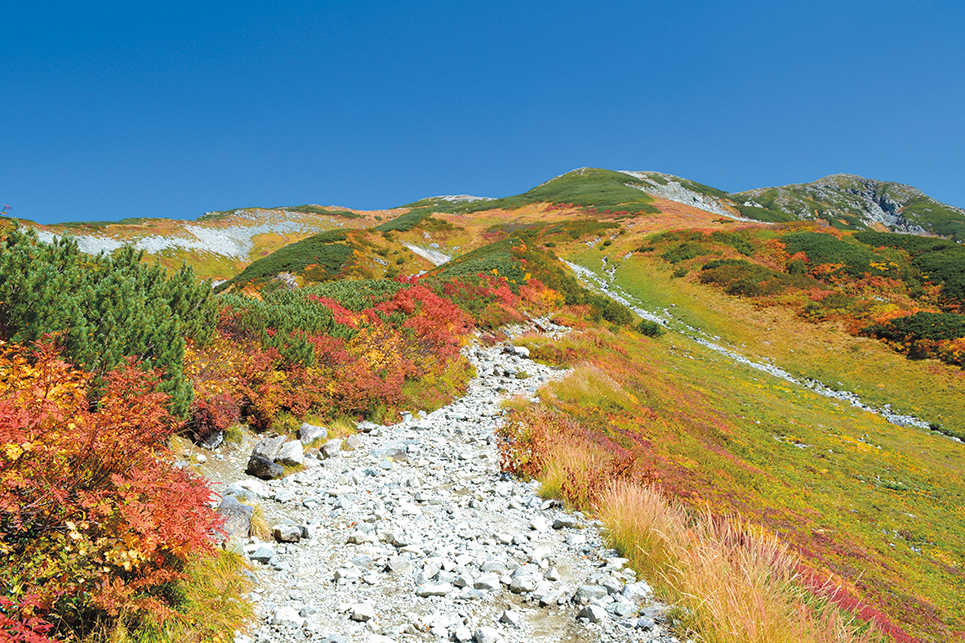
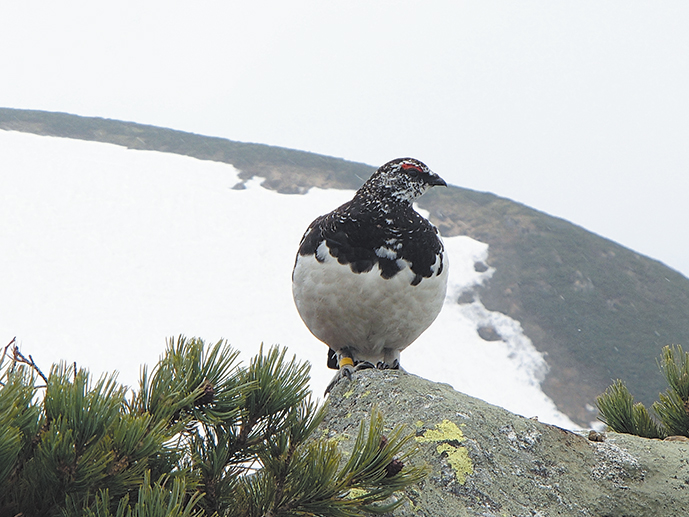
Norikura Mountains
Go by bus from the Gifu side or Nagano side to a rock ptarmigan habitat.
Tatami-daira also offers the chance of a sighting.
Nationally designated wildlife sanctuary manager,Masanao Kobayashi watches over and protects the nature of Norikura as the proprietor of the Norikura Hakuun-so Inn. Mr. Kobayashi, one of the first to voice the opinion that there needed to be rules in place for observing rock ptarmigan says, “It is a place where you can have the valuable experience of communing with a creature that lives in an entirely different environment.”
It is approximately 1.5 hours from the Norikura Bus Terminal and past Katano Koya in the same area as Mt. Mao and Mt. Daikoku in the Tatamidaira plateau, which is a rock ptarmigan habitat. Even further north are the peaks of Maruyama and Mt. Io.
Mt. Mao is the mountain immediately to the north of the bus terminal. The summit can be reached in approximately 20 minutes. Mt. Daikoku is also about 20 minutes from the bus terminal and there is a rest area at the summit. This is a beautiful peak to watch the sunrise from. Both of these peaks can be accessed from Hakuun-so where you can gather information from Mr. Kobayashi. Maruyama and Mt. Io are each approximately 3 hours roundtrip from the bus terminal. If possible, spending the night and enjoying two full days here is recommended.
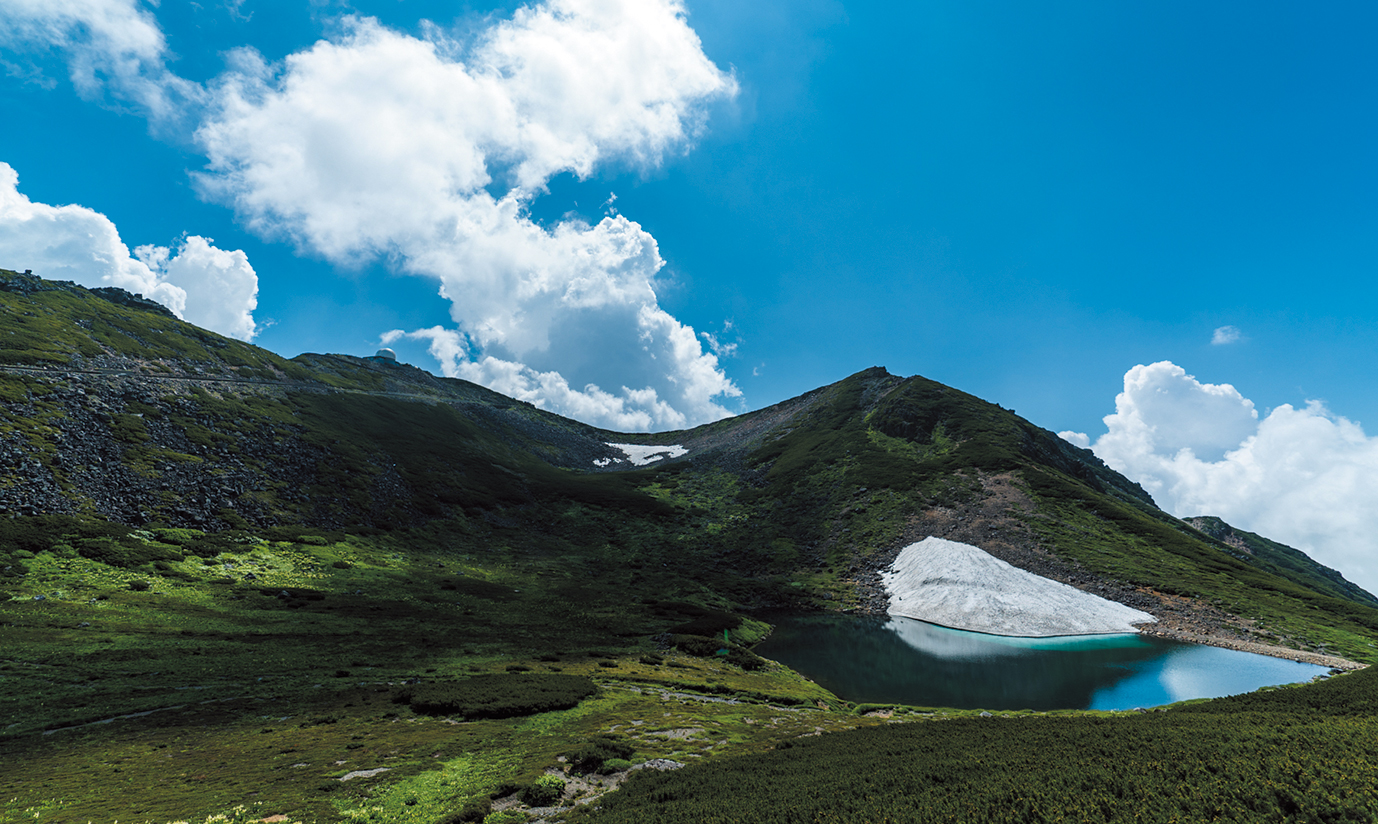
The calm Norikura mountains. Rock ptarmigan can be seen more often around the peaks of Mt. Mao and Mt. Daikoku than the highest peak of Kengamine.
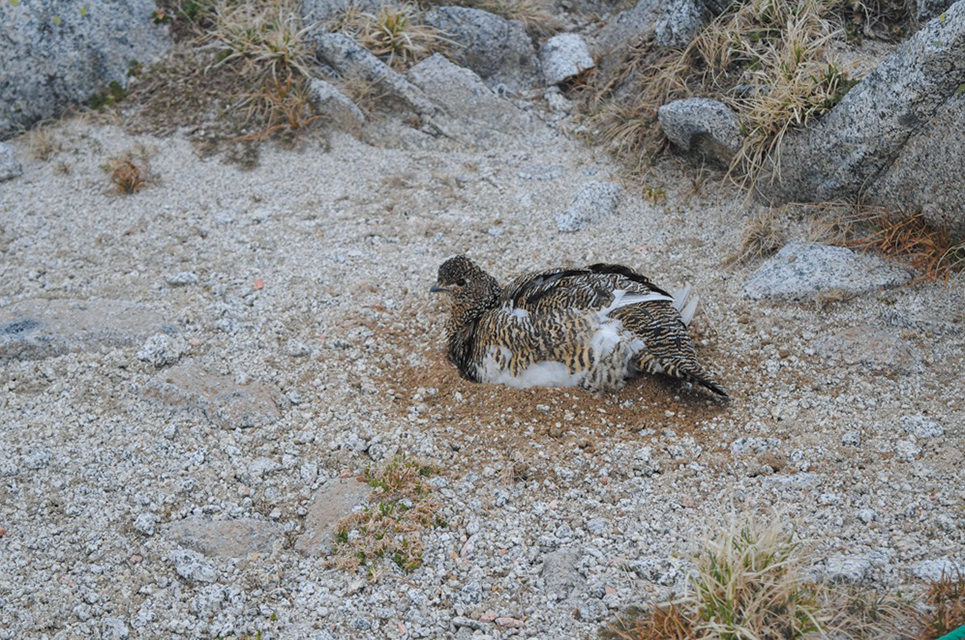
A rock ptarmigan bathing in sand. This behavior helps remove parasites that have attached themselves to its feathers.
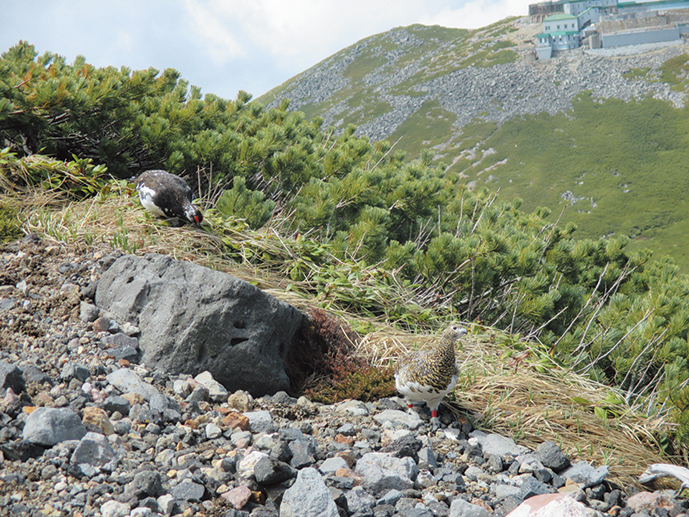
A rock ptarmigan foraging for food. Rock ptarmigan eat the leaves of short shrubs such as Aleutian mountain heathers or buds of plants like the Sorbus matsumurana.